
Image: Pixabay
There are more books being written and published at this moment in time than ever before. Self publishing has opened the doors to a global sharing of imagination and knowledge, but when you pick up the proverbial pen for the very first time, it can seem a daunting task. How do you start, where does it end… and how can you define success?
There are a plethora of resources available online to help writers start, explore or hone their craft. It matters not at all what you are looking for, there is something available. Whether you want to know how to write the vilest of villains or avoid creating a histrionic heroine, advice, good, bad and indifferent is easily located thanks to the power of the internet.
Most of this advice, it is true, is aimed at writers of fiction. There is a tendency to generalise and the term ‘book’ seems very often to come with the unwritten corollary that ‘we are talking about fiction here’. Writers of non-fiction, or of fictionalised fact, find themselves at a bit of a disadvantage where the general advice is concerned, especially as they tend to fall outside the accepted genres. Anyone who fails to fit into the genre mould or, heaven-forfend, chooses to mix them up a little, is seen as a bit odd, to say the least. As if they are more likely to sit down with a vampire for an in-depth discussion of parasitic morality and the best ways of growing garlic, than they are to offer them a passing virgin for tea.
Even research has changed. It is no longer exclusively the preserve of those happy to spend hours poring over dusty tomes… an unsafe practice at best for writers who have, as a species, a tendency to get lost in their pages. All it takes, these days, is a few clicks of the mouse and a world of knowledge opens in front of your eyes.
Grammar and punctuation may be corrected and polished by both the well-researched writer and the many programmes that are out there… though my own opinion of them is equivocal. Commas, like salt, may be sprinkled to taste while debates rage about the use of the Oxford variety.
You can learn all the rules and break them with impunity as long as you have found your own peculiar voice as a writer… except where spelling is concerned. There, you must conform, but the digital documents you create will nudge you in the right direction… sometimes. Unless the typo is a real, if misplaced, word. Or until it decides you should be using American English whether you like it or not. It is bad enough proof reading a manuscript in your own language, without having to check to see whether or not autocorrect decided to teach you another.
Then, when you have completed the book, done the editing, proofed it, rewritten and agonised over it, polished and proofed it again, you find that there is so much excellent, and often conflicting, advice out there about what to do next. You have to learn about marketing and promotion. You are reminded that cover designs and layout must be decided upon, you should think about getting a professional editor and sending the book to beta-readers… but the most important reader of all is usually dismissed as being unfit for the job.
You.
It is true that writers generally make terrible editors and proofreaders of their own work. With the best will in the world, and even if you sit there with eyes propped open with matchsticks until the words dance on the page, you will miss something. Every time. Whether you can afford a host of professional services or whether you do all the work yourself, you owe it to yourself and to your book to present it to the best of your ability. Unless you believe in it enough to do so, then why should anyone else?
If you have written from the heart, you will read from the heart…. and so will your readers. But no matter what you do, no-one else will ever read your book like you. You are the only person in the world who truly knows what you wanted to say and what you hope your book will do once you set its pages free to fly. You are the only one who knows why you wrote it… whether your aim was a bid for fame and fortune or whether it was one of those books that just had to be sent out into the world, regardless of whether anyone else reads it or not. Only you, in the deepest corners of your thoughts, know the answer to these questions and only you can say whether or not you have attained your goal…and if you have, then you have already achieved success.
‘Success’ is a strange word that each of us defines differently and that definition will change in every situation that is encountered. To me, success as a writer is not to be measured by royalties, celebrity or bestseller status, no matter how good that might feel, but whether or not, after all you have poured into its creation, you can still curl up with your own book… and enjoy it.


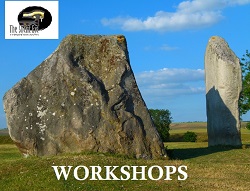



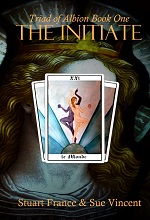


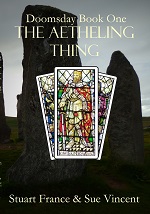
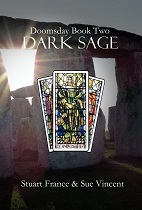








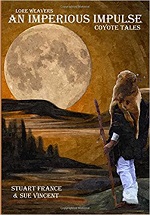


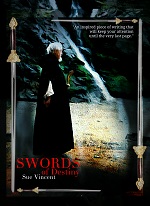

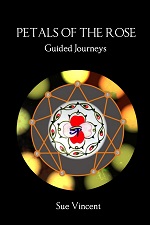

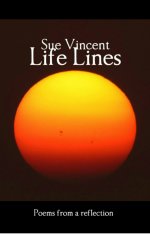
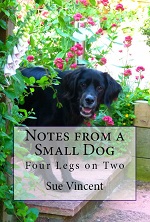



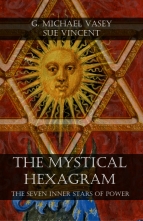

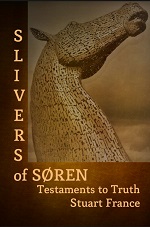


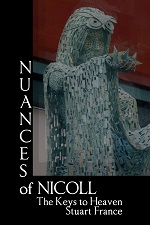


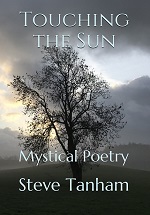

Reblogged this on The Militant Negro™.
LikeLiked by 2 people
Thank you 🙂
LikeLiked by 1 person
It’s my pleasure and you are very welcome.
LikeLike
🙂
LikeLiked by 1 person
🤓🥀🤗🌻😎🌷
LikeLiked by 1 person
‘But no matter what you do, no-one else will ever read your book like you. You are the only person in the world who truly knows what you wanted to say and what you hope your book will do once you set its pages free to fly.’ Having written all of one book, and a few short stories and lots of finished and unfinished poems, I have found that sometimes the writer does not know exactly what they wanted to say. For example, the ‘wing it’ experience that you mention in one of your replies may allow writing to take place almost in a dream, that is, ‘something else’ has taken over to produce a section of writing that had only a general intent behind it. Also, once the work has been read by someone else, their interpretation might modify what you thought you had wanted to say and transform it into something equally valid. I venture these comments, Sue, in the hope that I have not misunderstood what you were saying!!
LikeLike
A lovely article, Sue. I have discovered with my blogging adventure that if I enjoy a writer or poets blog, then I invariably enjoy their books. I have discovered so many amazing writers out there who are self published for whatever reason so I think that it is definitely worth all the hard work of writing a book and getting it edited and published. I, off course, also do my own illustrations which ups the work a lot but at least my books are for children so are shorter. Happy weekend, Sue.
LikeLiked by 2 people
We do the whole process too, including the photography…it makes formatting interesting 🙂 But I agree, well worth it in terms of enjoyment.
LikeLiked by 1 person
Garry read my book out loud, cover to cover — and he STILL missed typos. I couldn’t afford professional help, so I enlisted friends and family and they were more than willing. But they didn’t pick up half the typos. I find reading the book frustrating. I want to reach into the pages and fix everything.
As for all the advice on writing, I am one of those people who’ve never taken a writing course. I have always been afraid it would simply steal my voice. I’ve always felt this way, back to college in the 1960s. But I’m always interested in hearing about other writers’ processes … how they organize information, keep their characters in the right places and make sure it all comes out in order. So I suppose that’s a contradiction.
LikeLiked by 2 people
I wing it… little or no organisation in the pwriting ‘process’ except memory. And no courses either except practice.
The whole self-publishing adventure has been learned on the way…through th mistakes.. from cover design to editing. There are things I would change…things I will go back and re-do… but it has been fun all the way learning.
LikeLiked by 3 people
I do read my own books occasionally, and enjoy them as a reader. My writer self isn’t usually summoned by typos or other flaws, so I suppose that indicates a kind of success.
LikeLiked by 2 people
I’m glad, Audrey. I do still spot the minor errors… but the books are still fun 🙂
LikeLiked by 1 person
A wonderfully humorous and well-written read, as well as wise and insightful. Thanks Sue 🙂 x
LikeLike
The voice of painful experience 😉 x
LikeLiked by 1 person
What wonderful advice Sue! I needed that after already starting to fret about ‘what next’ and I haven’t even finished my first draft!!!
LikeLike
The book will always tell you when it is ready for the next step 🙂
LikeLike
Well at the moment it just won’t stop telling its story!!!
LikeLike
Then just sit down and take dictation 🙂
LikeLike
That’s exactly what I’m doing!
LikeLike
Best way 🙂
LikeLike
I’ve always thought the easiest way to write a book is to wait until you can’t NOT write a book, and then go for it.
LikeLiked by 2 people
I agree with you, Barb… once it gets you in ‘that’ place, you may as well give up struggling and go along for the ride 🙂
LikeLiked by 1 person
Reblogged this on Barb Taub and commented:
Sue gets it.
“…but the most important reader of all is usually dismissed as being unfit for the job.
You.”
LikeLiked by 4 people
Thanks, Barb.
LikeLiked by 1 person
Reblogged this on anita dawes and jaye marie.
LikeLike
Thank you, Jaye x
LikeLiked by 1 person
I am still learning the craft, and not as good a writer as Anita… and I suspect that the books I have written so far could do with another edit!
LikeLike
I think we can go on forever polishing as we learn, but take all the raw edges off and you risk losing the voice and character that makes it unique. x
LikeLiked by 1 person
Aawww… that makes me feel a lot better!
LikeLike
Reblogged this on Chris The Story Reading Ape's Blog.
LikeLiked by 2 people
🙂 ❤
LikeLiked by 1 person
Thank you, Sue. A voice of reason in a world of “must-dos.”
xx,
mgh
LikeLike
Write with integrity… I’m not sure we can do more than that. xx
LikeLiked by 1 person
Well said.
xx, mgh
LikeLiked by 1 person
Thought-provoking post. I always love to read tips that can improve my writing skills. Thanks for sharing.
LikeLike
Thank you.
LikeLiked by 1 person
Great post, Sue. I love it that there are scenes in some of my books that still make me cry even though I’ve read them a bazillion time while writing, rewriting, and editing. You’re so right that in addition to the mechanics, part of this book-writing process is supremely personal.
LikeLiked by 1 person
I don’t think you can write a book with any depth unless you give yourself to it. I still laugh out loud…and cry… too.
LikeLiked by 1 person
Good post, Sue. 🙂 — Suzanne
LikeLike
Thank you, Suzanne.
LikeLike
Excellent post Sue, getting right to the heart of the matter. The love to write, the personal journey of exploration.
Re-blogged.
All the best
Roger
LikeLike
Thank you, Roger. It think that’s what it comes down to… a journey within through the words on the page.
LikeLiked by 1 person
Reblogged this on heroicallybadwriter and commented:
Some very wise words going to the heart of the matter.
LikeLiked by 1 person
Reblogged this on Die Erste Eslarner Zeitung – Aus und über Eslarn, sowie die bayerisch-tschechische Region!.
LikeLike
🙂
LikeLike
Reblogged this on Judith Barrow.
LikeLiked by 1 person
Apart from writing my poetry book,I did write a first draft of a book during NaNoWriMo a couple of years ago. It was tricky because it was based entirely on fact but I fictionalised names and places which ended up being a headache. I didn’t realise how hard it would be to edit, re-edit, edit some more, and then do a bit more editing! I can’t see that I will ever finsih it!!! It must have taken you absoloutely ages, and a lot of dedication with all of the work that goes into your books!
LikeLike
I can’t say I’m over-fond of proofing or formatting…but I enjoy playing with covers and blurbs and stuff. But the whole process is so exciting, I don’t mind going cross–eyed over commas 🙂
LikeLiked by 1 person
HA! There speak a true writer! 🙂 x
LikeLike
🙂 x
LikeLiked by 1 person
This is so true! I have to like my own words – my own stories – first. Then I hope others will enjoy also, but if not, at least I’ve written from my own heart.
LikeLiked by 1 person
Writing for ourselves is not ‘self-indulgent’ when it comes from the heart…and that shows, I feel.
LikeLiked by 2 people
YES!! xo
LikeLike
Such and Enjoyable post Sue… insightful as ever!
LikeLike
Thanks, Paul 🙂
LikeLike
Stellar post my friend. 🙂 xx
LikeLike
Thanks, Debby ❤
LikeLiked by 1 person
Sue, I’m sending over a post ❤
LikeLike
Reblogged this on Smorgasbord – Variety is the spice of life and commented:
Wise words from Sue Vincent that I recommend any writer of books whatever the genre read. This is especially true if you are a first time author. And If I might add something here. You are not inventing the wheel..you are not the first.. there are millions of us who went through this for the first time.. and we are there to help if you need it. #recommended
LikeLiked by 1 person
Reblogged this on poetry, photos and musings oh my!.
LikeLiked by 1 person
So much has been said about the writing process and there is a plethora of information out there for any aspiring writer. But, there is no replacement for consistently writing something every single day. The more you do something, theoretically, the better you get. However, that being said, the Creative Writing Courses I invested my time and money in proved to be invaluable. I’m still learning, five books later. Great post, Sue.
LikeLike
Thanks, Jan. I agree, there is just about everything out there…free or as an investment… but you never stop learning regardless.
LikeLike
Yes! I love this post. I couldn’t agree more. Thank you for sharing these thoughts. 💖
LikeLike
Glad it struck a chord, Sarah 🙂 ❤
LikeLike
Reblogged this on A.Fae and commented:
Great post! Thanks, Sue.
LikeLiked by 1 person
Pingback: How the Internet Has Changed Novels in 5 Ways – lucy j.
Reblogged this on Writer's Treasure Chest and commented:
Sue Vincent informs us with an excellent blog post how to write a book. Thanks a lot Sue.
LikeLiked by 1 person
A spot-on article, Sue! I’ve been scribbling for decades: diaries, articles, poetry, short stories and five books and am truly hooked on words, while not over-ambitious. I’m more of a plodder, although I was happier financially speaking in the misty past when commissioned to write by a mainstream publisher. Oh the joys of an ADVANCE (?) and ROYALTIES (?) and healthy SALES (!) Fast forward and eking out a meagre pension, the rewards are laughable (while the joke’s too bad…) and I’m expected to write and be the ‘washer-up/cleaner’ too!.I was taught when quite young that the world’s not a fair place, Too right! PS I shall continue to write for my own enjoyment and a few others. Best wishes. Joy Lennick
LikeLike
Hi Joy, I grew up with a writer who earned an actual living from her work… the world is a very different place these days for writers. While there is now no excuse for remaining unpublished, getting those books read is a much more difficult task. Writing from the heart, writing those books we would choose to read, means that at the very least we give pleasure to one reader…even if it is only ourselves.
LikeLike
Pingback: How to Write a Book by Sue Vincent, Blogshare
Excellent advice Sue .. And yes I agree with you it should be a book we ourselves are happy to be absorbed in reading. Wishing you a peaceful Sunday this very Autumnal day.. Sue 🙂
LikeLike
Thanks, Sue. Yes, the autumn has definitely set in.
LikeLiked by 1 person
Wonderful advice, Sue.
LikeLike
Thanks, Robbie.
LikeLike
Reblogged this on Highland Editorial Services and commented:
Excellent advice for new writers! Especially this part:
“It is true that writers generally make terrible editors and proofreaders of their own work. With the best will in the world, and even if you sit there with eyes propped open with matchsticks until the words dance on the page, you will miss something. Every time. Whether you can afford a host of professional services or whether you do all the work yourself, you owe it to yourself and to your book to present it to the best of your ability. Unless you believe in it enough to do so, then why should anyone else?”
LikeLike
Pingback: Friday Roundup – 15th September | Stevie Turner, Indie Author.
What an insightful post, Sue. I enjoyed your sprinkling of humor and could honestly hear you reading the post. A post from the heart!
LikeLike